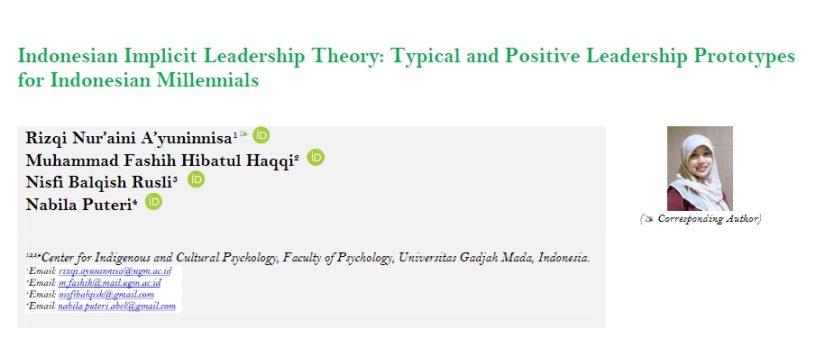
ABSTRACT. Leadership studies in Indonesia tend to discuss the way leadership affects individual attitudes and behavior as well as team effectiveness. However, a more contextual and recent approach study in understanding leadership remains underdeveloped. As a preliminary, this study aims to explore the concept of Indonesia’s leadership based on local perspectives by taking into account Implicit Leadership Theory. Data were gathered by involving 404 millennials (63,6% female, 36,4% male) using an open-ended question namely “Describe three characteristics of a leader” and two scales asking participants’ perception about how typical and effective each leaders’ characteristic count for leadership. A total of 1159 responses were analyzed using thematic analysis and demonstrated four characteristics depicting prototypes of leaders namely moral (41,07%), generally-competent (29,42%), charismatic (20,79%), conscientious (8,71%). A one-way ANOVA was also conducted to compare the effect of leader’s prototypes on perception of typicality and effectiveness of leadership. There was a significant effect of leadership prototypes on perception of typical leadership at the p<.05 level for the three conditions for each of perception about how typical and effective the prototypes reflect leadership. However, at the level of prototypes, no differences were found in perceiving which prototypes were considered as more typical and effective. The descriptive scores of each prototype indicates all of the prototypes were perceived as high in reflecting typicality and effectiveness in leadership. In conclusion, all leadership prototypes emerged from the responses were perceived as both typical and effective by the participants.
